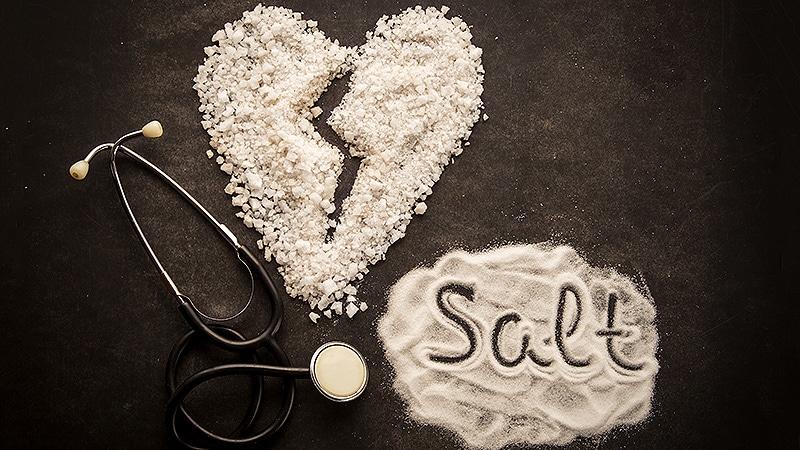Northerner
Admin (Retired)
- Relationship to Diabetes
- Type 1
Sodium restriction is one of the most common dietary recommendations made by US physicians. But there is lack of consensus on how low to go and whether cutting salt can ever be harmful.
When our evolutionary ancestors left the salty environment of the sea for dry land, the burden of salt and water conservation fell to the kidneys. "The tenacious conservation of salt is one of the most primitive — if not the most primitive — of functions in the vertebrate kidney," wrote Homer W. Smith in From Fish to Philosopher.
Over time, dietary habits changed, and in the current US environment there is no shortage of salt. One nationally representative survey reported a dietary sodium intake of over 3600 mg daily in US adults. While major scientific societies are united in asking us to cut our salt intake, they generally differ regarding sodium thresholds. For example, the CDC advises a daily limit of 2300 mg of sodium, the AHA goes lower with 1500 mg, and the WHO sits in the middle at 2000 mg/day.

 www.medscape.com
www.medscape.com
When our evolutionary ancestors left the salty environment of the sea for dry land, the burden of salt and water conservation fell to the kidneys. "The tenacious conservation of salt is one of the most primitive — if not the most primitive — of functions in the vertebrate kidney," wrote Homer W. Smith in From Fish to Philosopher.
Over time, dietary habits changed, and in the current US environment there is no shortage of salt. One nationally representative survey reported a dietary sodium intake of over 3600 mg daily in US adults. While major scientific societies are united in asking us to cut our salt intake, they generally differ regarding sodium thresholds. For example, the CDC advises a daily limit of 2300 mg of sodium, the AHA goes lower with 1500 mg, and the WHO sits in the middle at 2000 mg/day.

Is Cutting Salt Ever Harmful?
Despite universal recommendations to lower sodium intake, there is a lack of consensus on how low to go and whether cutting salt can ever be harmful.
